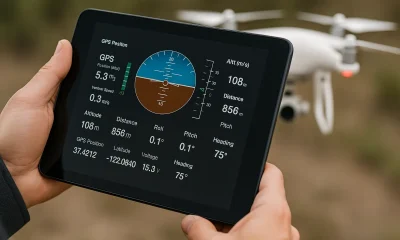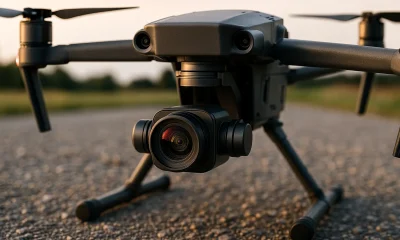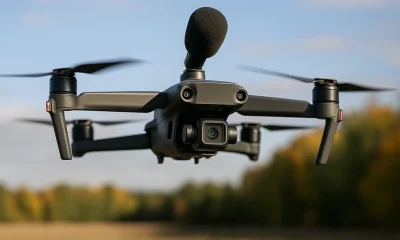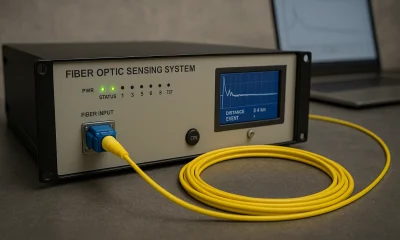Chinese Drone Regulations
Chinese Drone Regulation FAQ’s
Published
12 months agoon
Table Of Contents

Chinese Drone Regulation Questions
Navigating the environment for Chinese drone regulation in China can be complex. To help clarify the requirements and ensure safe and legal use of drones, we have compiled a list of frequently asked questions (FAQs). This section addresses common concerns and provides detailed answers regarding certification, operational limits, safety protocols, and compliance with the Civil Aviation Administration of China’s (CAAC) regulations. Whether you are a hobbyist or a commercial operator, these FAQs will help you understand and adhere to the rules governing drone use in China.
General Questions
What is the difference between Basic and Advanced Operations?
Basic Operations are for low-risk drone flights that typically occur in uncontrolled airspace, away from people and buildings. Advanced Operations involve higher-risk flights, such as flying in controlled airspace, near people, or beyond visual line of sight (BVLOS), and require additional certification and safety measures.
Do I need a license to fly a drone recreationally?
Yes, if your drone weighs between 250 grams and 25 kilograms, you need to obtain a Basic Operations certificate by passing an online exam. Drones under 250 grams do not require a license but must still follow safety guidelines.
How do I register my drone?
You can register your drone online through the Civil Aviation Administration of China (CAAC) Drone Management Portal. You will need to provide information about the drone, pay a registration fee, and display the registration number on your drone.
Where can I fly my drone?
You can fly your drone in uncontrolled airspace away from airports, heliports, and other restricted areas. You must maintain visual line of sight and follow altitude restrictions. For flying in controlled airspace, near people, or at night, you will need an Advanced Operations certificate or a Special Flight Operations Certificate (SFOC).
What are the consequences of flying a drone without certification?
Flying a drone without the necessary certification can result in fines ranging from ¥1,000 to ¥50,000 for individuals and ¥10,000 to ¥200,000 for organizations. Severe violations may lead to higher penalties or criminal charges.
Certification and Licensing
How do I get a drone pilot certificate?
To get a Basic Operations certificate, you must pass an online exam available on the CAAC website. For an Advanced Operations certificate, you must pass the Advanced Operations exam and complete a flight review.
What is involved in a flight review for Advanced Operations?
A flight review assesses your practical flying skills and knowledge of advanced operational procedures. You will demonstrate your ability to safely operate the drone in various scenarios, including emergency situations.
Do I need to renew my drone pilot certificate?
No, currently drone pilot certificates issued by the CAAC do not have an expiration date. However, it is essential to stay informed about any regulatory updates or changes in requirements.
Can I use my drone pilot certificate from another country in China?
No, drone pilot certificates from other countries are not recognized in China. You must obtain a Chinese drone pilot certificate to operate legally within the country.
What is the minimum age to fly a drone commercially?
The minimum age to fly a drone commercially is 16 years. Additionally, you must obtain an Advanced Operations certificate and any other required certifications depending on the nature of the commercial operation.
Operational Questions
Can I fly my drone at night?
Yes, but you must have an Advanced Operations certificate and equip your drone with anti-collision lights visible from at least 3 nautical miles. You may also need a Special Flight Operations Certificate (SFOC) depending on the specifics of your operation.
How can I apply for a Special Flight Operations Certificate (SFOC)?
You can apply for an SFOC by submitting an application to the CAAC that includes detailed information about your planned operation, a risk assessment, and a safety plan. Approval is required before conducting the operation.
What are the rules for flying a drone in urban areas?
To fly a drone in urban areas, you need an Advanced Operations certificate. You must adhere to specific safety protocols, such as maintaining a safe distance from people and buildings, obtaining informed consent if flying close to individuals, and following any additional requirements outlined in an SFOC if needed.
How high can I fly my drone?
The maximum permitted altitude for drone flights is 120 meters (400 feet) above ground level. Flights above this altitude require special permission from the CAAC.
What should I do if I lose connection with my drone?
Most drones have a Return-to-Home (RTH) function that activates automatically when the connection is lost. Ensure your RTH settings are correctly configured before flight. If manual intervention is needed, follow your drone’s emergency procedures to regain control.
Privacy and Security
What are my responsibilities regarding privacy when flying a drone?
You must respect individuals’ privacy rights when flying a drone. This includes obtaining consent before collecting personal information, informing people when they are being recorded, and complying with privacy laws such as the Cybersecurity Law and Personal Information Protection Law (PIPL). Avoid flying over private property without permission.
How can I protect the data collected by my drone?
Implement strong encryption for data transmission and storage, use secure communication channels, and restrict access to authorized personnel only. Regularly update your drone’s software to protect against security vulnerabilities. Additionally, maintain proper data management practices, such as secure backups and data anonymization when possible.
What should I do if there is a data breach involving my drone operations?
Follow your incident response plan, which should include detecting and containing the breach, notifying affected individuals and authorities as required by law, and taking corrective actions to prevent future incidents. Document the breach and your response for compliance purposes and review your security measures to identify and address any vulnerabilities.
Reporting and Enforcement
How can I report a drone flying illegally?
You can report illegal drone activities to the CAAC through their online reporting system or by calling their hotline. Provide as much detail as possible, including the location, time, and a description of the drone and operator to facilitate the investigation.
What should I do if I receive a penalty notice from the CAAC?
Review the penalty notice carefully and understand the nature of the violation. You have the right to appeal the decision or request a review. Submit your appeal or review request to the CAAC within the specified time frame and provide any supporting evidence or arguments.
Can the CAAC inspect my drone operations?
Yes, the CAAC can conduct inspections and audits to ensure compliance with regulations. This may include on-site inspections, reviewing flight logs and maintenance records, and verifying certification and registration.
Summary
This FAQ section provides answers to common questions about drone operations, certification, regulations, privacy, security, and enforcement in China. Understanding these frequently asked questions helps drone operators comply with the rules, maintain safety, and operate responsibly.
To Learn more about acronyms used in this article visit our Drones Acronym Page.
Pros
Cons
You may like


What is TLM (Telemetry) & How Does it Work?


What is PTZ (Pan-Tilt-Zoom) & How Does it Work?


What is PAS (Passive Acoustic Sensor) & How Does it Work?


What is OGI (Optical Gas Imaging) & How Does it Work?


What is DAS (Distributed Acoustic Sensing)?


What is CFI (Certified Flight Instructor) & How Does it Work?